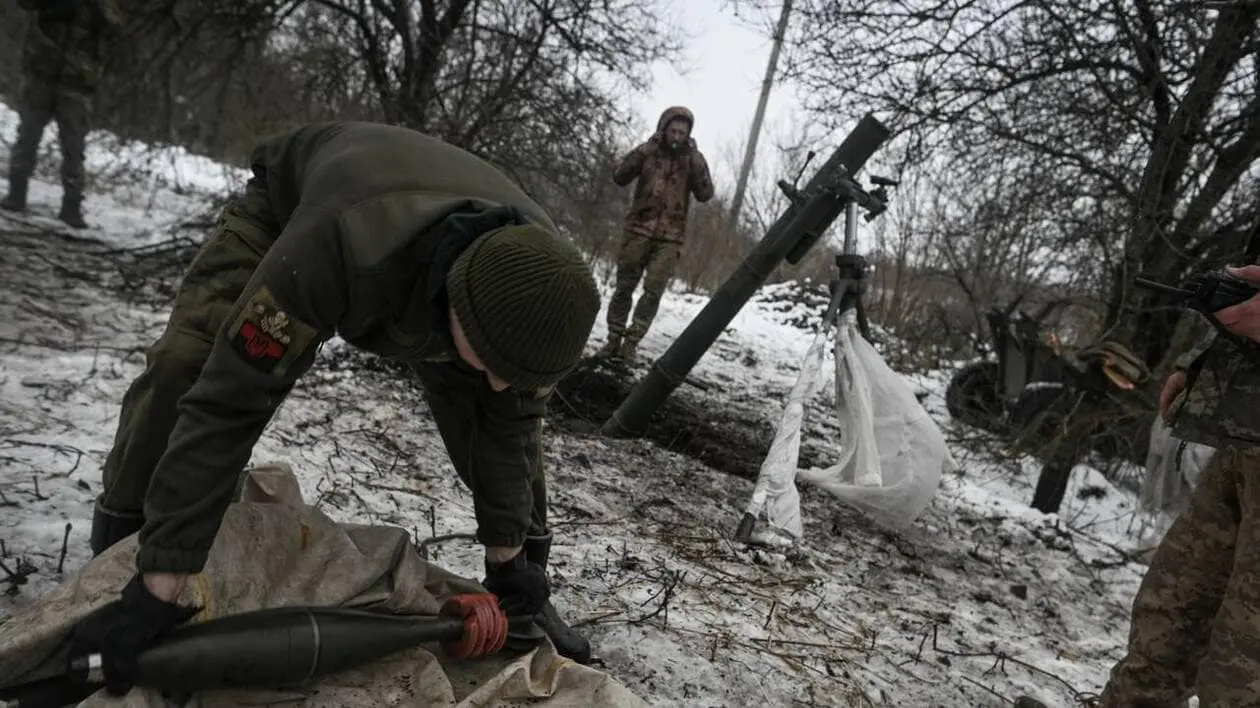Background of the Brigade
The 155th Brigade of the Armed Forces of Ukraine, also known as the ‘Anne of Kyiv’ brigade, was established with high hopes and significant international support. Initially, it represented a collaborative effort between Ukraine and France to enhance military capabilities against ongoing threats. Train initiatives began with much fanfare, illustrating a partnership aimed at bolstering Ukraine’s defenses, particularly amidst the ongoing conflict with Russia.
However, what started as a promising venture quickly became overshadowed by reports of desertion and management issues. Many recruits, eager to serve and defend their homeland, found themselves grappling with new challenges that they had not anticipated. Some of these soldiers, having undergone rigorous training in France, were soon disillusioned, voicing concerns over their preparedness and the effectiveness of their training.
The Training Process
The training received by the soldiers in France included advanced combat tactics, familiarization with cutting-edge weaponry, and strategic exercises designed to simulate battlefield conditions. But there were challenges. Reports indicate that a significant number of soldiers deserted during their training phase—a situation that took officials by surprise.
Foreign training environments often present unique challenges. Language barriers, cultural differences, and unfamiliar military protocols can create hurdles for soldiers who are attempting to adapt. These obstacles can be particularly daunting for those who are far from home and facing the pressures of imminent combat.

Desertion and Its Causes
Desertion isn’t a phenomenon exclusive to any one military; indeed, it has been a recurring issue throughout the history of armed conflict. However, the reported instances of Ukrainian soldiers abandoning their posts highlight critical issues within the brigade. In total, authorities began investigating upwards of 1700 soldiers highly concerning process.
There are various factors that contribute to desertion. For the Ukrainian forces, some soldiers cited dissatisfaction with the training conditions, others expressed fears about engagement based on the reports of Russian operations. Coupled with the stress of potential combat, many soldiers felt unprepared and questioned their ability to perform under pressure.
Response from Ukrainian Leadership
As the desertion incidents came to light, Ukrainian leadership, including President Volodymyr Zelenskyy, intervened decisively. Recognizing the severity of the situation, the president ordered a thorough investigation into the allegations of mismanagement within the brigade.
During a press briefing, Zelenskyy emphasized the importance of accountability and the necessity to maintain operational integrity. He expressed concerns about how reports of desertion could weaken national defense efforts, especially against a formidable adversary. To further bolster the brigade, new strategies were proposed, including the integration of drones and advanced surveillance technologies.
Strategic Implications
The implications of the scandal extend far beyond the numbers. They touch on critical aspects of military strategy. The focus has shifted towards reinforcing the brigade with newer technologies while addressing the morale of the troops. Insights gathered indicate that units comprising well-trained personnel are shown to be more effective in engagements.
Efforts will also be made to establish better communication with soldiers to understand their needs and concerns directly. Rectifying management issues is crucial. Military success hinges on trust and respect within the ranks, which must be cultivated through open dialogue and support.

Potential Solutions
In light of these events, various potential solutions have been proposed to mitigate the desertion rates and improve overall morale. These include comprehensive psychological support, team-building activities, and more personalized training approaches. Establishing a strong support network for soldiers can help in enhancing their confidence.
Crucial measures could also incorporate the development of a mentorship program, pairing veterans with new recruits to foster a sense of belonging and kinship within the army. The sense of being part of a larger community can significantly bolster a soldier’s resolve to remain committed to their duties.
Public Perception and Media Coverage
The reaction from the public and the media has been one of concern and speculation. Many commentators have pointed out how the scandal could impact public perception of the military. The ongoing analysis in various news outlets has painted a sobering picture, with some outlets focusing on the bravery of those soldiers who decide to stay committed even after such traumatic experiences.
Media portrayals can shape narratives, either by highlighting the courage of those involved or by exposing criticism that could further demoralize troops. The balance is delicate and must be approached with care to avoid exacerbating the situation.
Case Studies from Other Militaries
Other militaries around the world have faced similar situations. For instance, during the Vietnam War, the US military encountered high desertion rates due to various socio-economic factors affecting soldiers. Analyzing these cases provides valuable lessons for current military operations.
Countries such as Israel and Canada have implemented successful reintegration programs for soldiers facing challenges upon returning to civilian life. Their strategies focus on emphasizing mental health resources and maintaining strong community ties, showcasing how understanding can lead to improved retention rates.
Summary of Key Takeaways
The events surrounding Ukraine’s French-trained brigade serve as a harsh reminder of the complexities faced by armed forces in modern warfare. The challenge extends beyond operational readiness; it encompasses the psychological well-being of soldiers and their perceived readiness to fight for their country.
As investigations continue, the focus must turn towards implementing effective strategies to address morale and management within the brigade. While challenges remain, the commitment to reinforcing and supporting those in uniform is crucial in building a stronger defense.
Source: www.rfi.fr
Hi, I’m Sarah, a 30-year-old journalist with a passion for storytelling and uncovering the truth. I strive to bring important issues to light and connect with my audience through compelling narratives.



